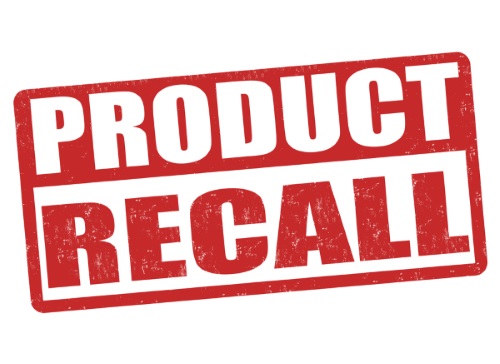
Blog
Should I Register My Child's Products?
Picture this. You excitedly arrive home with your brand new baby/toddler product purchase, remove the contents from the box and try to make sense of some poorly written instructions. Are they sure those instructions are written in English? After two or three attempts (maybe even four) you've finally assembled the product and pat yourself on the back. Another job well done! The only thing left to do now is throw out the packaging materials and then you can go on with the rest of your day.
Does any of that sound familiar? For a surprisingly large percent of parents cleaning up the packaging material marks the end of their purchasing process. Unfortunately there's one really important step that was forgotten in this storyline. No, I'm not talking about popping the bubble wrap although that can be fun. I'm talking about filling out the consumer registration card that came with the product and mailing it out.
In March 2017 the American Academy of Pediatrics released a study that analyzed 21 years of emergency department data in the US. The study focused on children under 3 years of age that suffered from an injury caused by a nursery product. Over the 21-year period there was an average of 66,278 injuries per year. That's a lot of crying kids and Moms. "From 2009 to 2012, nursery products were the leading children's product category recalled in the United States, and it is estimated that up to 80% of recalled children's products remain in consumer households after a recall."

What's a consumer registration card?
Some baby and toddler products ship with a postcard that requests you to supply your contact information and mail it back to the manufacturer, or directs you to the manufacturer's website where you can register. Consumer registration cards are actually mandated by Congress for durable infant or toddler products. The registration card helps to improve the effectiveness and response rates for future product recalls should they occur. Basically all the registration card does is link you to a specific product purchase and provides the manufacturer with your contact information in the event the product you purchased is recalled. A product could be recalled for something as significant as a design flaw or something simple like a faulty component that can easily be replaced. In either case a recall is something you want to be aware of and take the appropriate action.Don't be surprised if your baby/toddler product doesn't come with a consumer registration card. Congress doesn't require that all products come with a consumer registration card. Here are the item categories currently listed by the CPSC...
| - Bassinets and Cradles | - Infant Bath Tubs |
| - Bedside Sleepers | - Infant Bouncer Seats |
| - Booster Seats | - Infant Inclined Sleep Products |
| - Carriages and Strollers | - Infant Swings |
| - Changing Products | - Infant Walkers |
| - Children's Chairs and Stools | - Play Yards |
| - Cribs (Full-Size) | - Portable Bed Rails |
| - Cribs (Non Full-Size) | - Portable Hook-On Chairs |
| - Expansion Gates and Expandable Enclosures | - Sling Carriers |
| - Frame Child Carriers | - Soft Infant and Toddler Carriers |
| - Hand-Held Infant Carriers | - Stationary Activity Centers |
| - High Chairs | - Toddler Beds |
| - Infant Bath Seats |
For a current list be sure to visit the Consumer Product Safety Commission website.
In addition to the physical card, which requires mailing, some manufacturers will also advertise a website where you can register. We prefer the online route simply because it removes the chance of the card being lost in the mail. Select the registration method that works best for you. The key thing is to get it done.
Why should you mail the consumer registration card?
Some people probably skip sending in the consumer registration card thinking that if a recall happens they'll hear about it through one of the media outlets they follow. Even worse some people have the mentality that "it can't happen to me".
In all likelihood you're probably are already suffering from information overload with all the emails, texts, and social media you process on a daily basis. It wouldn't be hard for a 30 second news story to slip past you, or for you to glance over the headline of your favorite media outlet. If you're in the "it can't happen to me" camp believe me, it can happen to you. Hope isn't a strategy.
Here's the bottom line. Don't leave the health/life of your little one to chance! The consumer registration card is a proactive mechanism for keeping you informed and your little one safe from unsafe products.
Will my personal information be used for advertising?
No, manufacturers aren't supposed to use the contact information you provide for marketing or sales purposes. The sole purpose of collecting the information is so that they can contact you in the event the product your purchased is recalled. If you're still concerned provide them with the minimum amount of contact information that's required. Providing some means for the manufacturer to contact you is better than providing nothing at all.Should I register a second-hand product?
Just because you bought a gently used baby/toddler product that's already a couple years old it doesn't mean you're out of the woods and you can forget about safety recalls. The reality is that a product recalls can happen at any point in a product's lifetime. It's quite possible that a product component could take years of wear and tare and then fail resulting in a dangerous or life threatening scenario. The best thing to do is visit the manufacturer's website and see if they allow for your product to be registered online. If the manufacturer doesn't provide online registration visit their contact page and reach out to them about registering the product.If the manufacturer is no longer in business or if you simply can't tell what the make and model of the item is it might just be a good idea to pass. You should know definitively if the item you're taking home is safe for your little one.
If you want an alternative source for getting recall information you can also visit recalls.gov, a government operated website, which allows you to search for safety and recall information across several categories including consumer products.
Never miss a new post. Subscribe via email today and receive site updates.
| Email |
By clicking Subscribe, you agree that you've read and accepted our Terms of Service and you consent to our Privacy Policy. |


